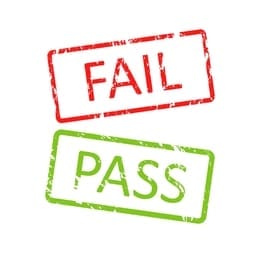Filing for bankruptcy is a major step, and probably not something you ever wanted to do. You may have been in a major accident, or you or a family member may have experienced an extended illness that resulted in insurmountable medical bills. Budgets may have been cut at work, or you may have found yourself out of a job altogether. Often, there are other accompanying factors too, like divorce, overuse of credit card due to lack of income, and more.
You Must Pass the Means Test for Chapter 7 Eligibility
Once you decide to explore bankruptcy, it is important to reach out to an experienced bankruptcy law firm like Levitt & Slafkes, P.C.. After an attorney reviews your case, you can discuss which type of bankruptcy you are interested in filing, as well as what is right for your situation. For many, the Chapter 7 bankruptcy seems most attractive as the time involved is shorter and most unsecured debt is discharged. Often you can keep essential property like your home and car too. But you must first ‘pass’ the means test to demonstrate that you are eligible.
Most debtors who file for Chapter 7 have a lower income and will be looking forward to what is often known as the liquidation bankruptcy. To pass the means test, you must show that your income is less than the median household income for New Jersey. This number varies, depending on how many family members you have; for example, for a family of four living in New Jersey, the annual median household income is $113,455, or $9,455/month. The bankruptcy court requires that your average monthly income be at this level or less for six months before you file for Chapter 7. If your income has been higher in previous months but is now diminishing due to a lack of income, you may find it beneficial to wait several more months before filing for Chapter 7.
If your income is higher than the annual median household income for families in New Jersey, this does not mean that you can’t file for Chapter 7 bankruptcy, it just means you must show you qualify with the required amount of allowed expenses, deducted from your income. These expenses can include essential items such as groceries and clothing, healthcare, utilities, family support payments, and more.
You may be exempt from the means test if more than half of your debts are non-consumer debts; for example, they may be business or tax debt. You are exempt if you are a disabled veteran. You may also qualify for exemption if you are in the military reserves or active in the National Guard.
The actual calculations for this test can be complex, but this is an area where your bankruptcy attorney will guide you.
Not Eligible for Chapter 7? Chapter 13 May Offer You Many Benefits
If you are eligible and proceed with a Chapter 7 bankruptcy, you can look forward to a discharge of most of your debts within three to six months. If you are not eligible, your attorney may suggest that you file for Chapter 13, which is a more income-based bankruptcy, allowing you to repay your debts over three to five years. And while you may be disappointed, the Chapter 13 bankruptcy offers many benefits. Most likely you will be able to keep all your assets, and you may even be able to reorganize some loans such as that of your home or automobile, lowering interest and payments in some cases. With the automatic stay, debtors are forced to cease collection activity, and you may find that you are able to defer payments for burdensome debts like student loans-for the duration of the bankruptcy.
Contact Us for Help Now
The experienced attorneys at Levitt & Slafkes, P.C. can answer all your questions regarding bankruptcy issues. Contact us today so one of our attorneys can evaluate your case and discuss the best options available to you. We are here to help! Call us at 973-323-2953, or contact us online to schedule a consultation at no cost.



